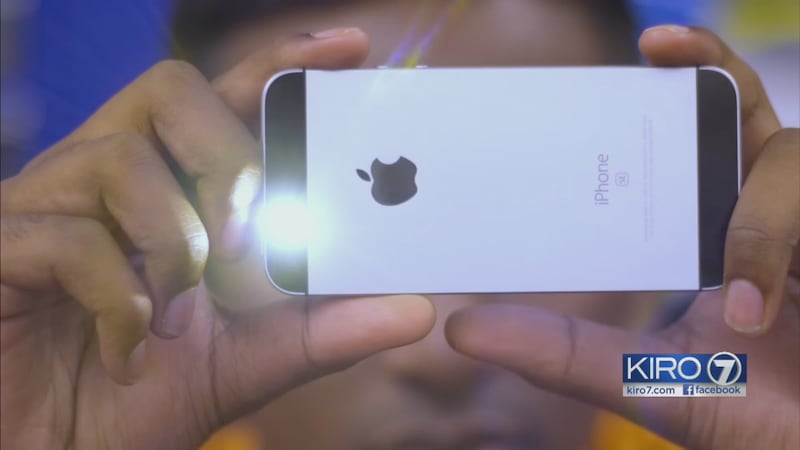Concussions in youth sports have taken center stage in the public spotlight and now researchers at the University of Washington have created a way for your smartphone to help determine a concussion.
A UW neurologist brought the idea to UW computer science researchers to create an app that measures the pupil. And now PupilScreen is born.
“The basic idea is we're taking a video,” PupilScreen co-creator Alex Mariakakis told KIRO 7. “And looking at individual frames and measuring the pupil as precisely as possible.“
Scroll down to continue reading.
TRENDING NOW:
- Wife with no-contact order against husband dragged 1,400 feet by his car?
- 5 nurses suspended for admiring dead man's genitals
- Multimillion-dollar speed limit signs could better ease congestion if speeds enforced, engineer says
- Sawant: Homeless 'explosion' in Seattle happened as Amazon gobbled up prime real estate
- VIDEO: Hurricane Irma
If you have a concussion your pupils don't react as quickly to light. You may have seen medics or doctors use a pen light. The app uses your smartphone's light and measures your eyes before and after exposed to light.
For the clinical trials they're using a box to control the distance and the lighting. But the goal is to perfect the app so when it ends up in your app store, anyone can use it without the box.
The clinical device to measure pupils, a Pupilometer, costs over $4,000. So the app would be more affordable for any team doctor or coach.
“Something that brings the precision of a clinical device,” Mariakakis said. “And something that's quick to deploy, easy to use like a pen light.”
In clinical testing the PupilScreen app was more accurate than a manual inspection, but not as accurate as a clinical device. With more data the PupilScreen creators say accuracy will improve.
And this technology is opening more possibilities. These are the same UW researchers behind the BiliScreen app KIRO 7 reported on that can detect Jaundice in your eyes.
“So basically if it's just we need to figure something out with the eye,” Mariakakis said. “We need a lot of pictures of the eye which I have a lot of now. We can figure those out.”
The goal is to have the PupilScreen app in your app store within two years.
Here's a video the research team put together.
Cox Media Group








